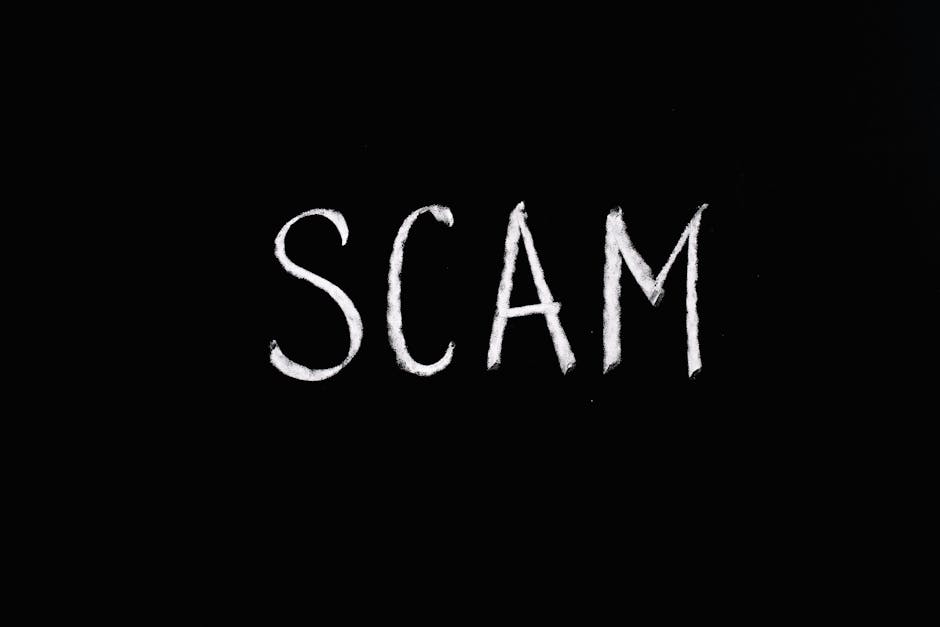Introduction
Personal loans, in simple terms, are amounts of money you borrow from a lender for personal use. They’re sort of like financial Swiss army knives, fitting neatly into various situations as per your need. Want to consolidate credit card debt? A personal loan can cover that. Need to finance a home remodeling project? Again, a personal loan could be your guy. Planning an extravagant vacation or a lavish wedding? Yep, a personal loan can be your go-to solution.
Yet, just because they’re as versatile as a culinary blender, doesn’t mean it should be your first pick off the financial shelf without mindful consideration. Personal loans come with their own set of intricacies and potential drawbacks – interest rates, terms, and month-on-month payments. These elements can turn into financial stumbling blocks if not chosen wisely. Hence, it’s crucial that you put on your thinking cap when you’re choosing a personal loan. This is not just loan advice, but life advice that will save you from unwanted financial stress later down the line. It doesn’t get spartan or casual than that.
So, buckle up as we take a deep dive into the world of personal loans, helping you make informed and wise decisions. Remember, a helping hand could be just an arm’s length away. But make sure to inspect the hand before you take the help.

Understanding Personal Loans
You’re probably asking, “What are personal loans, really?” Well, let’s break it down. Personal loans, simply put, are sums of money you borrow from a lending institution that you pay back with interest over an agreed period. Seems straight-forward, right? But here’s where it becomes crucial to really understand the different types you’re signing up for.
There’s a whole array of personal loans on offer. For instance, you have secured loans that are guaranteed by collateral – stuff like your house, car, or grandma’s diamond ring. Then there are unsecured loans that don’t require such collateral, but they might dig deeper into your credit score and usually come with higher interest rates. Other types include debt consolidation loans for simplifying your financial life, and co-sign loans if you’ve got a trusty friend who’s good for it.
Now, why is understanding all this important? Simply put, it’s about making informed decisions. Lending may seem like a friendly hand reaching out in a time of need, but remember, it’s not a gift – it’s a business transaction. Think about the what-ifs; What if you cannot repay on time? What if you lose that collateral? The clearer your understanding of personal loans and their terms, the better equip you’ll be to choose one that fits your specific needs and capabilities best. So, take your time, ruffle through those terms with a fine-tooth comb and arm yourself with knowledge, buddy. Because in the battle of lending, understanding is your best shield.

Factors to Consider When Choosing Personal Loans
Choosing a personal loan can seem like a daunting task with the multitude of options available, but breaking it down into specific factors can help streamline your decision. So, let’s get straight to the point.
One of the key factors is the interest rate. It’s the cost you pay to borrow money, and it can greatly influence how much you end up paying back in total. While lower interest rates are generally more desirable, be cautious of rates that seem incredibly low — they may only be introductory rates that can increase sharply after a period of time.
Next, consider the term length. This is the amount of time you have to repay the loan. Shorter term loans generally have higher monthly payments, but you’ll pay less in interest over time. Longer term loans, on the other hand, typically have lower monthly payments but accrue more interest over the life of the loan. It’s a bit of a balancing act, so you’ll need to decide what works best for your monthly budget.
Speaking of budgets, monthly payments are a critical factor. Make sure they’re affordable for you. It’s important to remember that missed payments can lead to troublesome consequences like damaged credit scores or even loan defaults. You don’t want any of that.
Lastly, consider the lender’s credibility and customer service. This is the one thing many borrowers overlook. Are they reputed and reliable? Can they provide support when you need it? If the answer is no, that’s a red flag. Seek out lenders with positive reviews and a proven track record of customer satisfaction to ensure you’re in good hands.
So in a nutshell, when choosing a personal loan, consider the interest rate, term length, monthly payment, and the lender’s credibility. Doing so will not only bring you some peace of mind, but also set you up for a more manageable debt repayment journey.

Importance of a Good Credit Score
Dipping into the crux of stuff, a credit score is more than just a three-digit number — it’s like your financial report card, its healthiness reflecting your creditworthiness. Now you might wonder, why is it important from a personal loan perspective?
Well, lenders use your credit score as a key indicator of your ability to repay the loan. It substantially affects two principal aspects – loan approval and the interest rates. A stellar credit score could boost your odds of not only getting your personal loan application approved but also snagging a lower interest rate. The math is simple here – lower interest rates translate to paying less over the tenure of your loan. On the other end of the scale, a bad credit score could either get you a loan with sky-high interest rates or see your application being tossed into the bin.
As such, it’s crucial for you to maintain a good credit score. So, how do you do it? Start by paying your bills (not just credit cards–all bills) on time, which is probably the most significant factor contributing to a good credit score. Try to avoid maxing out your credit cards and keep your balances low. Make sure you don’t open too many new credit accounts in a short time, which could signal financial distress to lenders.
To put it casually, a good credit score is like a golden ticket in your loan voyage. So, keep it high and mighty to get your ship sailing smoothly in the lending sea.

How to Choose the Right Lender
Choosing the right lender for your personal loan can be like finding a needle in a haystack. Here are some tips to make the process a little less prickly.
First things first, research. The more you dig up on possible lenders, the more informed your decision will be. Traditional banks or credit unions offer the comfort of being able to discuss your options in person, however, doing everything online, in the comfort of your home, might be more your speed. Online lenders often offer competitive interest rates and faster approval times. Understand the pros and cons of both, to see what suits you best.
Both traditional and online lenders should have their loan terms thoroughly examined. The devil is always in the details. A good starting point is to check the annual percentage rate, fees, whether the interest rate is fixed or variable, penalties for late payment, and what happens if you want to pay off your loan early. Comparing these will give a real sense of the cost of each loan. Reading these terms not only keeps you in the know, but also allows you to weed out lenders with unfavorable or complex terms.
Prioritize lenders who have earned a reputation for quality service and transparency. Feedback from other borrowers on aspects such as customer service and dispute resolution can be particularly useful. Online reviews and forums offer great insights.
Don’t forget that lending is not a one-size-fits-all scenario. Every lender has their specialty, whether it’s small loans, low-interest rates, or flexible terms and conditions. So, be sure to align their specialty with your requirement to see whether you’re a good match.
Finally, while it’s important to seek the best possible terms, remember that terms aren’t the only factor that matters. Consider the long-term implications of your loan and choose the lender that will provide the best overall experience.
Remember, getting a personal loan can be a decisive factor in your financial future. The importance of choosing the right lender can’t be overstated. Make your decision wisely!

Misconceptions About Personal Loans
When it comes to personal loans, a handful of myths have cropped up that can create a cloud of unease and misinformation. Let’s dispel some of these common misconceptions while reminding ourselves that, like any financial tool, personal loans should not be feared when used correctly.
-
Myth #1: Personal loans automatically mean you’re in financial trouble. Just because you’re considering a personal loan doesn’t mean you’re caught in a bad financial rainstorm. In fact, many use personal loans strategically for home remodeling, consolidating high-interest debts, or even for funding once-in-a-lifetime events.
-
Myth #2: Personal loans come with exorbitant interest rates. While it’s true that personal loans can have higher interest rates than, say, a home mortgage, they aren’t necessarily the wallet-drainers they’re painted out to be. Rates fluctuate based on a variety of factors, including your credit score and the loan term. Some personal loans may actually have lower rates than many credit cards.
-
Myth #3: Personal loans will ruin your credit rating. Just like any form of credit, personal loans will only impact your credit score negatively if you mishandle them. Defaulting on your loan or making late payments can certainly harm your credit score. Conversely, if managed wisely, a personal loan could even boost your credit rating through demonstrating successful repayment and credit diversity.
In conclusion, it’s essential to see personal loans in the right light. They are a financial tool amongst many others, subject to the same laws of wise use and careful management. Fear and misconceptions should not cloud our judgment. Proper research, understanding, and responsible use are the keys to harnessing the potential benefits of personal loans.

Beware of Scams
Maneuvering through the personal loan process can feel like navigating a maze at times, and unfortunately, this can leave many susceptible to scams. It’s crucial to be vigilant and learn how to differentiate between a legit loan offer and a fraudulent trap.
One of the first signs of a scam you should look out for is unsolicited loan offers. If you receive an email or phone call out of the blue offering you a too-good-to-be-true loan deal, consider it a red flag. Fly-by-night operations are renowned for using high-pressure sales tactics and lofty promises to hoodwink unsuspecting borrowers.
Remember, trustworthy institutions will typically conduct credit checks or request for documents to verify your ability to repay the loan. Therefore, any lender offering instant approval without credit checks can be a sure sign of a scam. Similarly, lenders who request for upfront payments, often labeled as “processing” or “insurance” fees before you receive funds, are most likely trying to dupe you.
At all times, protect your personal information diligently. Confirm the lender’s identity and legitimacy before providing sensitive data such as your Social Security number and bank account details. Legitimate lenders will have secure, professional websites, and a strong online presence with customer reviews and ratings to back them up.
When the unexpected happens, and you believe you’ve become a victim of a loan scam, it’s critical not to keep it to yourself. Report it to your local law enforcement agency and your bank. It’s vital to contact the Federal Trade Commission (FTC) as well, as they can take action against fraudulent companies.
In summation, while personal loans can be a game-changer to your finances, they demand an immense sense of awareness. Stay informed, stay protected, and always remember, if a loan offer seems fishy, it probably is.

Personal Loan Alternatives
Even though personal loans can be the ticket to your financial freedom, they might not always be the best fit for everyone. Situations depend largely on individual circumstances, requirements, and financial health. Here are a few alternatives to personal loans that you might want to consider before heading over to the personal loan expressway:
1. Credit Card Borrowing: If you need a smaller fund for a short period, using your credit card could be a more suitable option. Most credit cards offer a grace period to repay the borrowed amount without falling into the debt cycle. Be mindful though, as it can quickly turn into a high-interest burden if the repayment exceeds the grace period.
2. Home Equity Lines of Credit (HELOCs): This alternative allows you to borrow against your home’s value. It’s ideal for long-term projects like home renovations. Just remember, using your home equity as collateral can be a double-edged sword: while it affords you larger sums at lower rates, it puts your property at risk if you fail to repay.
3. Borrowing from Family and Friends: Perhaps the most cost-effective alternative – loaning from your social circle. While it eliminates formalities and interest rates, be aware that it may come with emotional costs. It’s crucial to have clear repayment terms and open communication to maintain healthy relationships.
To reiterate, every personal loan alternative has its pros and cons. Thoroughly assess your financial needs, repayment capacity, and risk tolerance before choosing an alternative. Balancing your needs with a dash of financial prudence can help you pick the most suitable option.

Using a Personal Loan Wisely
Sailing in a financial boat? Personal loans can be a life raft, helping you stay afloat during troubled times. However, mishandling loans is akin to punching holes in your own boat. One haphazard action, and you might find yourself sinking in a sea of debt.
The consequences of mishandling loans can range from dwindling credit scores to legal actions, depending primarily on the details of your lending agreement. Mismanaged loans can easily turn into a vicious cycle of debt that seemingly swallows your income and might even lead to bankruptcy at its worst. Harsh realities? Yes, but being aware of potential pitfalls can serve as the north star guiding your sail.
So, how can you manage and repay loans effectively? Let’s dive in and explore some solid tips.
First things first, organize your finances. Keep track of your income, your expenses, and your debts. Document everything – a good old-fashioned ledger or a modern budgeting app will do. Being cognizant of your financial standing can help you set realistic repayment goals.
Next, opt for automatic payments to avoid the risk of missing due dates. Remember, punctuality is the key—late repayment can lead to extra charges and plummeting credit scores. Most lenders allow automatic deductions right from your bank account, making it a hassle-free process.
Supplement your mandatory payments with extra ones whenever possible. Got a bonus? Use a portion of it to pay down your debt faster. It not only reduces your balance but also saves you from interest over the loan term.
Lastly, always keep an open line of communication with your lender. If you hit a rough patch and can’t meet your commitments, connect with them proactively. Most lenders are willing to help with a revised payment plan or temporary forbearance. Remember, it’s better to seek help than default on payments.
By using a personal loan wisely, instead of it being a burden, it becomes a buoyant force helping you manage your finances efficiently. Stick to the course, and soon you’ll find yourself sailing smoothly in the waters of financial stability.

Conclusion
In a nutshell, securing personal loans isn’t as formidable or rocky a path as it might look at the outset. What truly matters is making the right decision, which is grounded in a solid understanding of the loan market, its various offerings, the factors that influence your loan decision, such as interest rate, term length, monthly payments, and the credibility of the lender. Also, emphasize the importance of having a good credit score and the role it plays in securing favorable loan terms.
Alongside, comes the necessity to forestall loan scams, which plague this market, and to advise you to remain vigilant for the potential signs. Another critical thing to remember is that personal loans, though widely appropriate, may not always be the best solution for your financial needs, thus pointing towards other viable alternatives like credit card borrowing, home equity lines of credit, or even borrowing from family and friends.
The importance of using personal loans prudently cannot be understated. Mishandling can lead to severe financial consequences, so keep your management and repayments in check. The journey through making wise decisions when choosing personal loans could at times possibly feel overwhelming, especially with the volume of options and considerations to sift through.
That’s why we staunchly encourage you to take a beat, give yourself ample time to understand the dynamics before you leap, and, most importantly, engage with a trusted financial professional who could provide a knowledgeable perspective. Remember, at the end of the day, it’s not just about securing a personal loan, but doing it wisely—a process equally important as the loan itself.